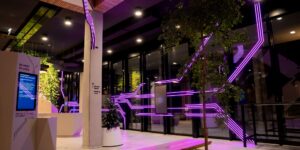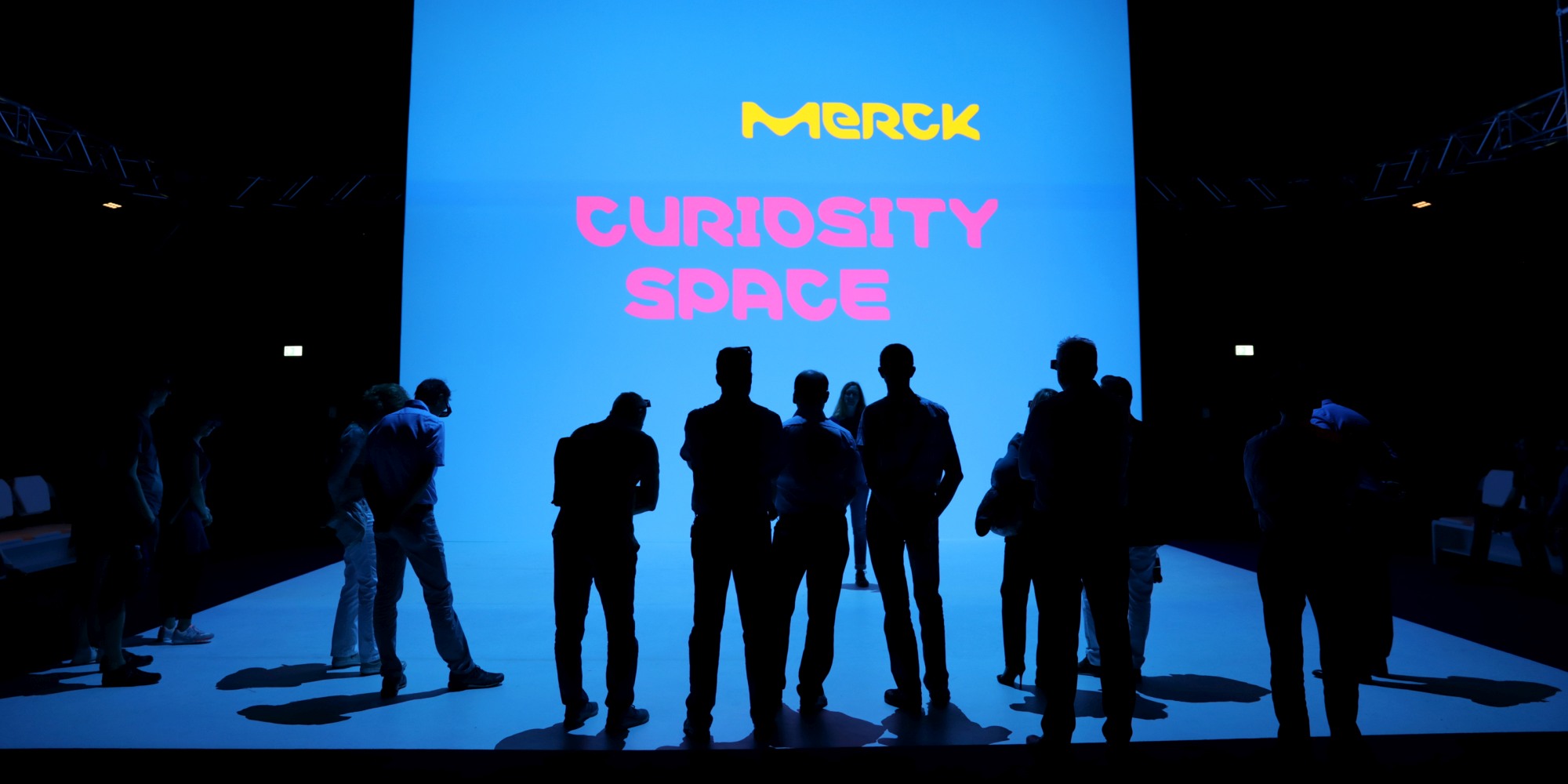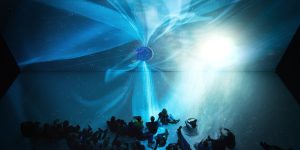Pharus
-

AT&S Erlebniswelt
Connect via Interactive Nervous System
Based in Austria, AT&S is a leading supplier of high-end printed circuit boards and substrates for the semiconductor industry. The company invited the Ars Electronica Futurelab to contribute to the design of the new headquarters – including the installation of an interactive “Nervous System”.
-

CoBot Studio
As humans and robots work together ever more closely, their joint success is linked to certain preconditions: How do you create safe working environments? How can we increase the acceptance of robots in everyday work? And how do you communicate with a colleague who consists only of a gripper arm?
-

Merck 350 Curiosity Space
In 2018, Merck (known as Merck KGaA, Darmstadt, Germany in the US and Canada) celebrated its 350th anniversary under the motto “Imagine. Always curious – also in the next 350 years”. For the program around Merck 350, the Ars Electronica Futurelab has developed the Curiosity Space: a walk-in 3D projection and experience space based on…
-

Building Bridges
The Bridge is one of the main passageways connecting two building complexes on the SAP Walldorf campus and it is host to the interactive music piece Building Bridges, jointly composed with Vienna-based composer Rupert Huber. Translating the movements of the pedestrians through a compositional algorithm, The Bridge serves as stage and instrument at the same time.
-

Deep Space 8K
The Deep Space 8K has received a major upgrade in 2022 – read all about the technical innovations as well as the latest programs on our Deep Space 8K EVOLUTION page!
-

CADET
Between 2010 and 2014, the FFG-funded Center for Advances in Digital Entertainment Technologies — in short CADET — has dealt with the research, advancement and usability of immersive technologies taken from the gaming and digital-entertainment industries.
-

pharus
The pharus tracking system was developed at the Ars Electronica Futurelab by researcher and artist Otto Naderer to provide interaction opportunities for any size group of people in virtually any environment.